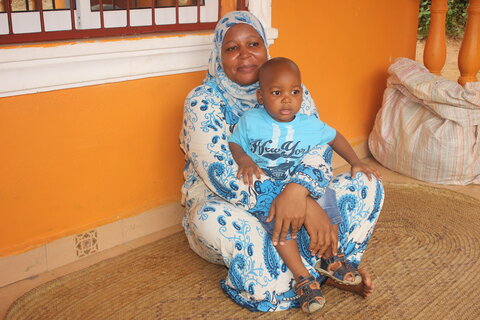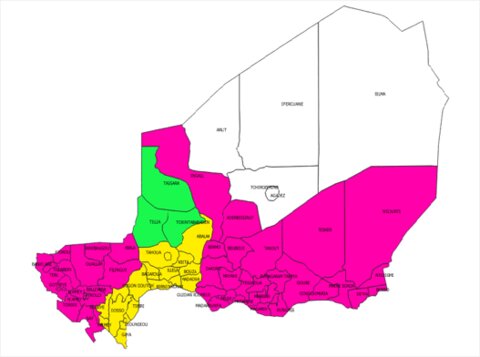Background

In Niger, the objectives set in the 2017-2021 PSN were achieved for certain interventions such as the coverage of LLIN campaigns and that of the SPC, the treatment of larval breeding sites listed with biolarvicides, confirmed cases of malaria having received treatment ACT alone and the acquisition of most inputs in relation to expressed needs. Certain indicators have not changed over these five years and have remained below the set objectives. These are routine activities (LLIN per year in children <1 year old, LLIN per year in FEs, IPT3 coverage and confirmed cases of malaria having received treatment with injectable Artesunate) and the management and monitoring activities. communication for behavior change at the community level.
In 2022, the NMCP revised the national malaria control guidelines to take into account the evolving epidemiological strata of malaria and the new WHO global guidelines. The surveillance system was adapted according to the level of malaria transmission in different areas of the country. This surveillance system also includes entomological and parasitological surveillance supported by sentinel sites. Strengthening the malaria surveillance system is based on strengthening the routine information system and the capacities of stakeholders at all levels. The integration of PNLP malaria data into the DHIS2 allowed the PNLP to better organize collection at all levels and rapid analysis to inform malaria indicators.
Areas eligible for SMC and areas where SMC is implemented in 2021

|
Niger |
# of children targeted |
# of children reached |
Coverage |
|
Cycle 1 |
4,448,151 |
4,424,353 |
99% |
|
Cycle 2 |
4,448,151 |
4,782,951 |
108% |
|
Cycle 3 |
4,448,151 |
4,733,283 |
106% |
|
Cycle 4 |
4448151.301 |
3889712 |
87% |
Data from the NMCP of Niger
Monitoring for coverage and compliance in the 2020 SMC season
Monitoring coverage
- Coverage was assessed during an SMC impact study, one objective of which was to determine coverage through a household survey.
Monitoring compliance
- Monitoring from Day 2
- Supervision of the process
Monitoring effectiveness
- The effectiveness of the intervention must be assessed through an impact study
Successes, opportunities, challenges and proposed solutions in the 2021 SMC season
Successes
- Adherence to cycle dates
- Resource mobilization was successful
Upcoming perspectives
- Timely organization of micro-planning workshops
Challenges
- Challenges with planning campaign on time
- Lack of compliance with the micro plan
Proposed solutions
- Conduct micro-planning workshops from the 1st quarter of the year to allow for enough time to implement
- Organize a national micro-plan validation workshop
Research priorities for 2021
- Adapting SMC (age group 5-9 years, 5th cycle) in 2022
- Compliance with the 2nd and 3rd dose (Médicins sans Frontières)
Implementation research partners
- NMCP, MMV and CERMES